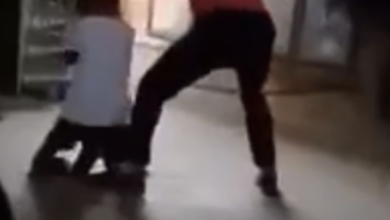The Steve Bartman Incident: A Controversial Moment in Baseball History
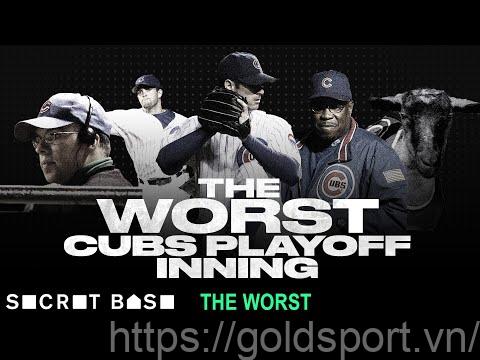
Explore the infamous Steve Bartman incident, a controversial moment in baseball history that unfolded during the 2003 Chicago Cubs and Florida Marlins playoff series. Discover the events leading up to the incident, the fallout that followed, and the Cubs’ eventual redemption in 2016. Learn about the impact this incident had on Bartman’s life and how it continues to be a reminder of the importance of sportsmanship. Visit Goldsport to delve into this captivating chapter in baseball lore.
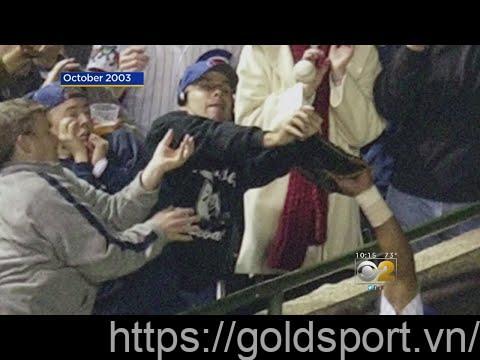
| Key Takeaways |
|---|
| The Steve Bartman incident occurred during the 2003 NLCS between the Chicago Cubs and the Florida Marlins. |
| The Marlins had a strong lineup and talented young pitchers, while the Cubs were seeking their first World Series appearance since 1945. |
| In Game 6, with the Cubs leading and five outs away from winning, Bartman’s attempted catch interfered with a foul ball, triggering a series of events that led to the Marlins’ comeback. |
| The Marlins went on to win Game 6, forcing a Game 7, which they also won, advancing to the World Series. |
| Bartman became a scapegoat for some Cubs fans and faced backlash, but has maintained a low profile since. |
| In 2016, the Cubs won the World Series and later presented Bartman with a championship ring as a gesture of closure. |
| The incident serves as a reminder of the impact of sports on individuals and emphasizes the need for empathy and respect. |
Introduction: The Infamous Steve Bartman Incident
The Cubs’ Quest for the World Series
In the annals of baseball history, few incidents have garnered as much attention and controversy as the Steve Bartman incident. It all unfolded on October 14, 2003, during Game 6 of the National League Championship Series (NLCS) between the Chicago Cubs and the Florida Marlins. The Cubs, who hadn’t reached the World Series since 1945, were just five outs away from clinching a historic victory and ending their championship drought. Little did they know that a seemingly harmless play would forever change the course of the game and leave a lasting impact on both Bartman and the Cubs’ legacy.
The Marlins’ Unexpected Rise
On the other side of the diamond, the Florida Marlins had their own story of resilience and triumph. Led by a talented roster that included Ivan Rodriguez, Juan Pierre, Derrek Lee, and a formidable group of young pitchers, the Marlins overcame a slow start to the season under manager Jeff Torborg. With a managerial change and several key additions throughout the season, they secured a spot in the postseason as the Wild Card team. The Marlins’ journey to the NLCS was filled with thrilling victories and unexpected comebacks, setting the stage for their fateful clash with the Cubs.
The Turning Point: The Bartman Incident
As Game 6 unfolded at Wrigley Field, tension filled the air. The Cubs held a 3-0 lead in the eighth inning and were tantalizingly close to securing their place in the World Series. However, in a moment that would be etched into baseball lore, Cubs left fielder Moises Alou leaped to catch a foul ball near the stands. As he extended his glove, Steve Bartman, an innocent fan sitting in the front row, reached out for the ball, inadvertently preventing Alou from making the catch. This sparked a controversy and a chain of events that would turn the tide of the game and haunt Bartman for years to come.
The Marlins’ Journey to the 2003 World Series
High Expectations and Off-Season Acquisitions
The Marlins entered the 2003 season with high expectations after making several significant off-season acquisitions. They added catcher Ivan Rodriguez and outfielder Juan Pierre to their already strong lineup, which included first baseman Derrek Lee and third baseman Mike Lowell. Additionally, the team boasted a talented group of young pitchers such as Josh Beckett, A.J. Burnett, and Brad Penny.
A Slow Start and Managerial Change
Despite their talented roster, the Marlins got off to a slow start under manager Jeff Torborg, going 16-22 before Torborg was fired in May. Jack McKeon took over as the new manager and turned the season around for the team.
Rookies, Trades, and Additions
Under Jack McKeon’s leadership, the Marlins made several key moves throughout the season to strengthen their roster. They called up rookies Miguel Cabrera and Dontrelle Willis from the minor leagues, traded for pitcher Ugueth Urbina, and brought back fan favorite Jeff Conine in a trade. These additions played an important role in the team’s success.
Playoff Berth as the Wild Card
Despite facing tough competition in the National League East, the Marlins finished the regular season with a 91-71 record, securing a playoff berth as the Wild Card. Their strong performance allowed them to clinch a spot in the postseason for only the second time in franchise history.
Postseason Success and Road to the World Series
In the playoffs, the Marlins faced the San Francisco Giants in the National League Division Series. Despite being underdogs against a Giants team led by slugger Barry Bonds, the Marlins won the series in dramatic fashion, including a thrilling Game 4 that ended with a play at the plate. Next, they faced the Chicago Cubs in the National League Championship Series, ultimately winning the series in seven games to advance to the 2003 World Series.
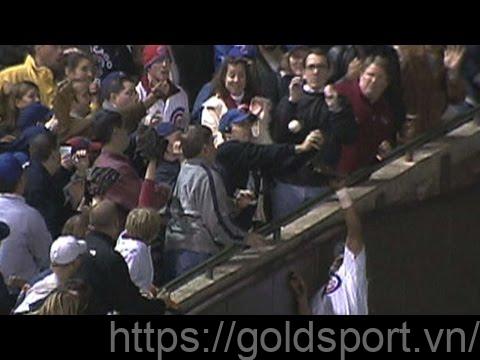
The Cubs’ Path to the NLCS and Game 6
A Season of Hope and Promise
The Chicago Cubs entered the 2003 season with high hopes and a talented roster. Led by manager Dusty Baker, the team had a successful regular season, finishing with a record of 88-74 and clinching the NL Central division title. The Cubs boasted a strong lineup featuring players like Sammy Sosa, Moises Alou, and Mark Prior, who was one of the top pitchers in the league that year.
A Battle in the NLDS
In their quest for a World Series berth, the Cubs faced off against the Atlanta Braves in the National League Division Series (NLDS). The series was a hard-fought battle, going the full five games. The Cubs emerged victorious, winning the decisive Game 5 to advance to the NLCS. It was their first postseason series win since 1908, adding to the excitement and anticipation surrounding the team.
A Clash with the Marlins
Awaiting the Cubs in the NLCS were the Florida Marlins, who had also fought their way through a challenging NLDS against the San Francisco Giants. The Marlins were led by a talented group of young players including Miguel Cabrera and Dontrelle Willis. The series between the Cubs and Marlins was closely contested, with both teams displaying their skills and determination on the field.
Tension Builds in Game 6
As the series reached Game 6, tensions were high for both teams. The Cubs had a 3-2 series lead and were just one win away from reaching their first World Series since 1945. With ace pitcher Mark Prior on the mound, Chicago looked poised to secure a historic victory. However, things took an unexpected turn with the infamous Steve Bartman incident, forever changing the course of the game and the series.

The Moment of Controversy: The Bartman Incident Unfolds
A Cubs Fan’s Reach and a Left Fielder’s Miss
In Game 6 of the 2003 NLCS between the Chicago Cubs and the Florida Marlins, a fateful moment occurred that would forever be etched in baseball history. As Marlins second baseman Luis Castillo lifted a pop fly to left field, Cubs left fielder Moises Alou leaped in an attempt to make the catch. However, as Alou reached out, a Cubs fan named Steve Bartman also reached for the ball, interfering with the play. Despite Alou’s frustration, the umpires ruled it as no fan interference, keeping the at-bat alive.
A Series of Misfortunes for the Cubs
Following the controversial incident, the game took a dramatic turn against the Cubs. Instead of recording the second out of the inning, Castillo drew a walk, and Ivan Rodriguez followed with a single, bringing Juan Pierre home. Miguel Cabrera then hit a ground ball that should have been a double play, but Cubs shortstop Alex Gonzalez dropped the ball, loading the bases. The Marlins capitalized on these mistakes, tying the game and ultimately taking an 8-3 lead. The Cubs’ dreams of reaching the World Series were shattered, and they would go on to lose Game 7 as well.
Fan Backlash and Bartman’s Escalating Notoriety
In the aftermath of the incident, Steve Bartman faced intense backlash from Cubs fans. He was subjected to insults and debris being thrown at him, forcing him to be escorted out of the stadium by security. Bartman became a scapegoat for the team’s misfortunes, with some fans blaming him for their failure to advance to the World Series. Despite apologies and attempts to move on, Bartman’s name became synonymous with the incident, and he chose to maintain a low profile, refusing interviews and public appearances.
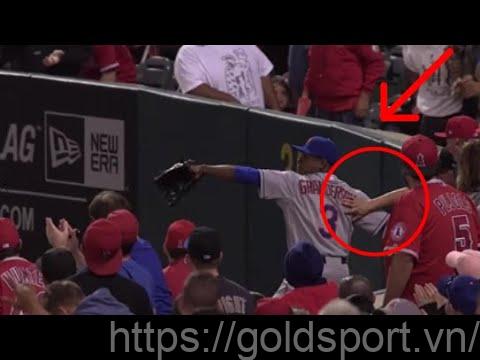
The Cubs’ Collapse and the Marlins’ Comeback
The Turn of Events in Game 6
In Game 6 of the 2003 National League Championship Series (NLCS), the Chicago Cubs were just five outs away from securing their spot in the World Series. With a 3-0 lead and their ace pitcher Mark Prior on the mound, the atmosphere at Wrigley Field was electric. However, a pivotal moment changed the course of the game and ultimately led to the Cubs’ collapse.
The Bartman Incident
The infamous Bartman incident occurred in the top of the 8th inning. As the Marlins’ Luis Castillo hit a foul ball that drifted into the stands, Cubs left fielder Moises Alou leaped to catch it. Unfortunately, Steve Bartman, a Cubs fan sitting in the front row, also attempted to catch the ball, preventing Alou from making the play. The incident sparked controversy and heated emotions among fans.
The Unraveling of the Cubs
Following the Bartman incident, things quickly unraveled for the Cubs. Instead of securing an out and potentially ending the inning, Castillo’s at-bat continued, and he drew a walk. The next batter, Ivan Rodriguez, singled, bringing home Juan Pierre. The Marlins took advantage of the Cubs’ mistakes as Miguel Cabrera hit a ground ball to Cubs shortstop Alex Gonzalez, who failed to turn a double play. The Marlins capitalized on these opportunities, tying the game and eventually taking an 8-3 lead. The once hopeful Wrigley Field crowd fell into despair as they witnessed their team’s collapse.

The Aftermath: Bartman’s Fallout and the Cubs’ Repercussions
Bartman Becomes a Pariah
After the Steve Bartman incident, the Cubs fan quickly became a pariah among the team’s faithful supporters. He faced intense backlash, with fans pelting him with debris and hurling insults. Bartman had to be escorted out of the stadium by security due to the hostile environment. His name became synonymous with the Cubs’ collapse, and he was blamed by some for the team’s failure to reach the World Series.
The Curse of the Bartman Ball
Following the incident, there was a belief among some Cubs fans that the ball touched by Bartman was cursed. In an attempt to break the curse, the ball was publicly detonated in February 2004. It became a symbol of the frustrations and superstitions surrounding the team’s championship drought. The detonation of the Bartman ball was seen as a cathartic act for Cubs fans, hoping to put an end to the perceived curse and move forward.
Bartman’s Low Profile and Redemption Gesture
In contrast to the intense scrutiny and backlash he faced, Steve Bartman chose to maintain a low profile in the aftermath of the incident. He declined interviews and public appearances, despite numerous requests and endorsement offers. Bartman remained out of the spotlight, avoiding any further attention or controversy. In a surprising turn of events, when the Cubs finally won the World Series in 2016, it was revealed that the team had awarded Bartman a World Series ring as a gesture of redemption and closure for the unfortunate chapter in his life.
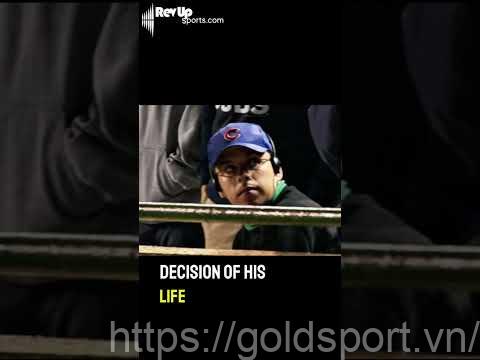
Bartman’s Low Profile and Cubs’ Redemption in 2016
Bartman’s Life in Seclusion
After the infamous incident, Steve Bartman chose to retreat from the public eye and maintain a low profile. He declined interviews, public appearances, and endorsement offers, preferring to live a quiet and private life. Bartman’s decision to avoid the spotlight allowed him to move forward and heal from the backlash he faced from some Cubs fans.
The Cubs’ Long-Awaited Redemption
In 2016, the Chicago Cubs finally broke their 108-year championship drought and won the World Series. The victory brought a sense of redemption and closure for the franchise and its devoted fan base. The Cubs’ triumph was a remarkable moment in baseball history, and it signaled the end of the curse that had plagued the team for over a century.
Bartman’s Symbolic Ring
As a gesture of goodwill and reconciliation, the Chicago Cubs organization decided to present Steve Bartman with an official 2016 World Series Championship ring. This act acknowledged the unfair scapegoating Bartman endured and aimed to bring closure to a painful chapter in Cubs history. The ring served as a symbolic token of forgiveness and an opportunity for all parties involved to reflect on the importance of empathy, sportsmanship, and learning from past mistakes.

Conclusion: Lessons Learned from the Steve Bartman Incident
The Steve Bartman incident serves as a stark reminder of the intense emotions and pressures that can surround sports, particularly in high-stakes situations. It highlights the dangers of scapegoating and the negative impact it can have on individuals. The incident also sheds light on the importance of personal privacy rights and ethical media conduct. Ultimately, this incident teaches us the need to treat each other with respect and empathy, both in sports and in society as a whole. It serves as a valuable lesson to learn from the past and strive for a more compassionate and understanding future.
The information in this article has been gathered from various sources, including Wikipedia.org and different newspapers. Although we have made careful efforts to ensure the accuracy of the information, we cannot guarantee that every detail is 100% accurate and verified. Therefore, it is advisable to exercise caution when using this article as a reference for your research or reports.




